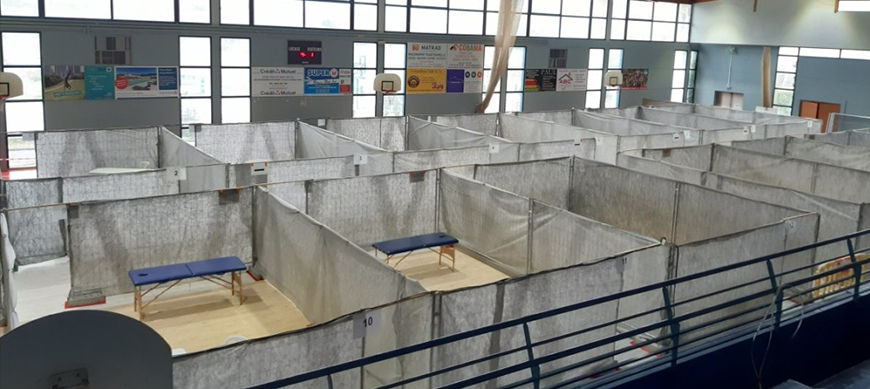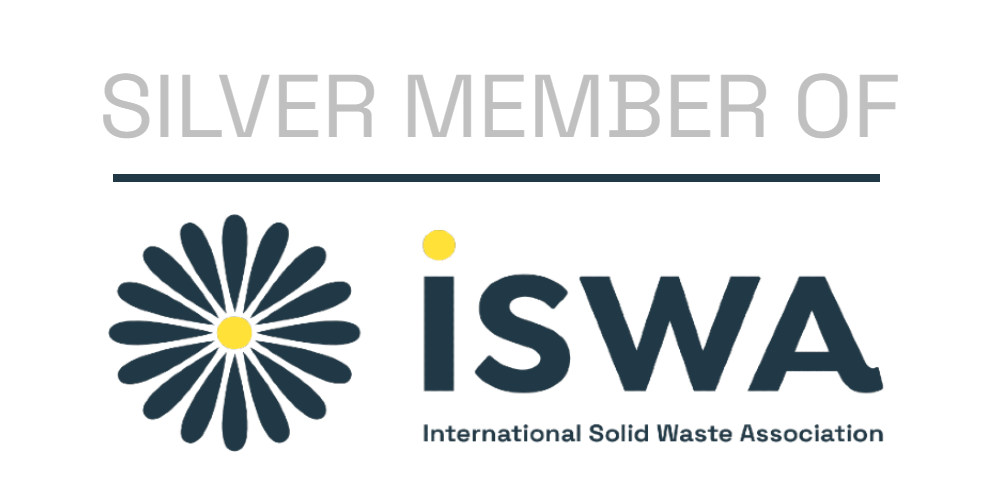Bertin Technologies offered its experience and expertise in treating biomedical waste on site in hospitals and healthcare centres to the CCD du Grand Vallat (Bouches-du-Rhône).
In March 2020, Bertin Technologies (CNIM Group) installed a Sterilwave 100 in the CCD du Grand Vallat (a dedicated Covid-19 consultation centre) in France.
This intercommunal medical centre was set up by the Grand Vallat Intercommunal Association (Bouc-Bel-Air, Simiane-Collongue) with the aim of treating patients potentially affected by the SARS-CoV-2 virus in order to prevent contamination in doctors’ surgeries and bottlenecks in emergency departments. With the help of a team of professionals and volunteers, the patients were tested, diagnosed and redirected to emergency departments if needed.
This temporary structure had capacity for up to 500 people per day, and so had the potential to generate large quantities of waste potentially infected with the coronavirus. This could therefore have contributed to the spread of the virus if the waste had been treated outside of the centre.
“We installed 15 consultation boxes with the aim of being able to offer widespread treatment to patients within the region,” explains Colonel Marc Caudrillier, Director of the National civilian and military training centre for nuclear, radiological, biological, chemical and explosive events (CNCMFE NRBC-E) and head of the dedicated consultation centre in Grand Vallat.
The Sterilwave 100 solution provided by Bertin Technologies enabled the centre to treat medical waste on site and thereby eliminate all risk of contamination outside of the establishment.
“We needed to be independent. The Sterilwave solution meant that we did not need to worry about all the waste to be treated, which would not have been possible if we had used an external waste treatment organisation,” says Colonel Caudrillier.
Its process is very simple and fully automated: the waste is ground down and heated in the same container to over 100°C for 20 minutes. Once processed, the waste is reduced in volume by 85% and in weight by 25%. As the waste is now dry, inert and unrecognisable, it can be disposed of with the domestic waste without any risk.
“Our aim was to be in a position to treat a very large quantity of soft biomedical waste (overalls, gloves, masks, etc.), which quickly fill a waste bag. Given the restrictions in transportation, we needed to treat this waste on site and quickly & efficiently reduce the number of waste bags. With Sterilwave, the reduction in volume is substantial: three bags in the container become just one,” says Lieutenant colonel Vincent Dubrous, Fire Department Senior Health Manager.
The biological inactivation results obtained by using Sterilwave technology on bacteria (including sporulated forms[1]) and viruses have been validated by the French Ministries of Health and the Environment. They meet the requirements of all international norms and standards throughout the world. The technology enabled the dedicated consultation centre in Grand Vallat to treat waste that had potentially been contaminated by the virus without endangering the health of its volunteers and the municipal hygiene staff.
Lieutenant-colonel Dubrous was responsible for initiating a large number of cycles and highlights the machine’s practical qualities and excellent ease of use. “Installing the machine did not require any special work or facilities. A tap and an electrical socket were all that was needed. We then let the machine take over the rest. The reliability of the tracking and alert system is a valuable asset in emergency situations such as the one we have been experiencing.”
“We are thrilled to have been able to help the CCD du Grand Vallat to tackle the pandemic,” says Boguslaw Lorecki, Director of Bertin Medical Waste. “This project is in keeping with our desire to be a partner for health services so that we can respond to the challenges of public health together.”


